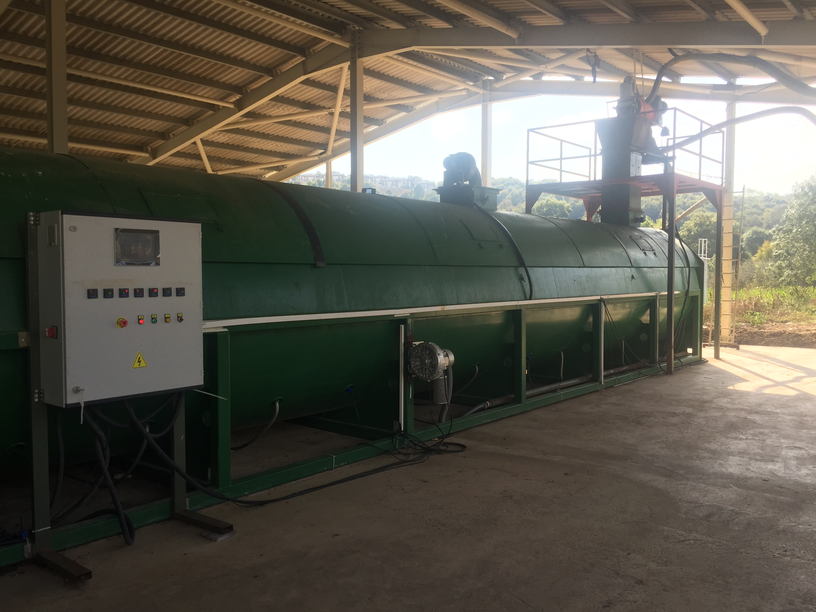Organic Waste Composting Machine (Bioreactor)

The compost machine is one of the machines frequently used for the production of fertilizers from organic waste. The organic waste compost bioreactor stands out as an industrial type compost machine that provides precise control.
What is Organic Waste Composting?
Composting is biological separation and stabilization process of organic wastes (manure, food waste, green waste, abattoir waste etc.) under controlled environmental conditions. Process types can be aerobic or anaerobic. Aerobic composting is also more advantageous in terms of faster decomposition of organic matter and operation.
What Are Organic Wastes?
- Cattle manure
- Chicken manure
- Food waste
- Green waste
- Landscape waste
- Slaughterhouse waste
What Are Aerobic Composting Goals?
- Making biodegradable organic substances stable,
- Reducing the waste volume,
- Ensuring pathogen removal and weed seeds to become harmless,
- Reducing the odor problem,
- Preserving the nutrient content at the maximum level,
- Obtaining a product that can be used as a fertilizer and soil conditioner.
What are the Benefits of Compost?
- Turns organic waste into valuable product.
- Improves the soil structure.
- Provides aeration of the soil.
- Provides nutrients when plants need it.
- Neutralizes toxins in the soil.
- Regulates the pH balance of the soil.
- Accelerates the growth and strengthens the plants.
- Reduces the need for chemical fertilizers.
Genema Ultra Efficient Composting Bioreactor is an improved in-vessel technology that minimizes process time, maximizes nutrient content and significantly reduces operating costs by providing optimum conditioning to achieve aerobic composting targets.
Features of Composting Machine (Bioreactor)
- Provides wide range organic waste processing capacity with continuous flow system.
- Provides efficient heat transfer and aeration with PLC controlled central shaft.
- Not affected by adverse environmental conditions with its closed structure and prevents leachate.
- Insulated outer surface provides energy savings and significantly reduces operating costs.
- The modular structure facilities the capacity increase when requested.
- Compact design allows for smaller volumes than other composting systems.
- Optimum fermentation conditioning minimizes active phase time.
- Fulfills the legal obligations through pathogen elimination.
- Records process conditions instantly and stores them in memory.
- Highly resistant to corresion with special coating.
- Offers a user-friendly experience with its graphical interface.

